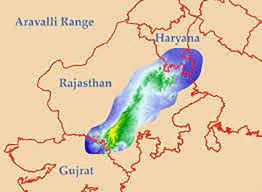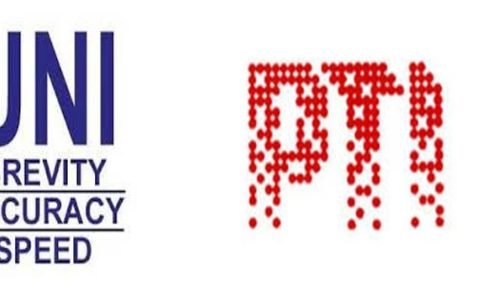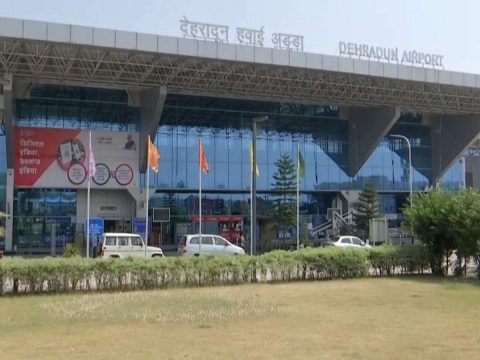INDIA GREENS PARTY
Petition
IGP appeals to Environment Minister to withdraw draft EIA-2020 as it does not acknowledge best practices
12 August 2020
To
Shri Prakash Javadekar,
Minister of Environment, Forests and Climate Change
Indira Paryavaran Bhawan, Jor Bagh, New Delhi-110003.
Subject: India Greens Party reject the draft Environment Impact Assessment-2020, appeals to you to withdraw it.
Hon’ble Minister,
The India Greens Party wishes you all the best!
With due respect to your high office, the India Greens Party wishes to communicate to you that the party does not accept the draft Environment Impact Assessment-2020 or EIA-2020 and rejects the draft as a potential law of the country.
The draft does not acknowledge the best practices in EIA from across the world. Many countries have EIAs that are implemented at the sectoral (power or transport), strategic (energy transition) and crosscutting (health and biodiversity) scale for greater effectiveness and better environmental governance. Your draft is regressive because it aims at approving projects more than assessing them.
This kind of law is the reason why India remains unprogressive.
It is unacceptable that we, the members of the IGP and the people of this country, are not allowed to speak about the projects that are imposed on our neighbourhoods, our coasts and forests.
The draft EIA-2020 proposed by your Ministry clearly reflects the fear of public participation in the central government.
The draft gives impunity to so many projects from public hearings that it makes us think if these projects are for the good of a select few.
The Covid-19 pandemic lockdown has shown us how unequal our society is.
The poorest people of our country and the communities that live in forest areas, coastal regions and the mountains rely on environmental resources to survive. There are enough studies to show that nature thrives only when environmental communities are safe and prosperous.
We demand that the government must draft laws that enable marginalized communities to prosper and be able to conduct practices that sustain their livelihoods. The Government of India must do away with EIA dilutions that entrust our valuable natural resources to private industries.
The central government has done so little to combat climate change, environmental degradation and biodiversity loss even after the responsibility bestowed upon us by the Paris Climate Change Agreement.
If we do not change our approach to the environment, the future generations of India will suffer the most.
This government, which is mostly made up of seniors, may not foresee the next few decades while planning, but as a young political party, we do.
Therefore, we are morally bound to demand the Ministry to withdraw the EIA-2020 and replace it with a progressive law that promotes sustainability and combats climate change.
The covid-19 pandemic has taught the world a very important lesson. We must focus on the long term health of people rather than making short-term environmentally downgraded decisions.
We demand that the central government and the environment ministry stop ignoring the voices from across the country and fulfill our educated demands.
The world has already changed forever. It’s high time we adapt to the rules.
Dear Minister Sir, the IGP on 19 April 2020 had also objected to the stipulated time-frame for finalizing the draft EIA-2020 of your Ministry and its subsequent enforcement in the light of COVID-19 pandemic in the country.
But, your Ministry did not listen to a small political party.
We had demanded that a fresh draft be put in public domain that too after the Covid-19 lockdown was totally over.
Your Ministry had put the draft of new rules EIA-2020 in public domain asking if any person was interested to make objections or suggestions on the proposal contained in the draft notification.
Accordingly, the IGP had filed the objections/suggestions to the said draft as follows:
· Instead of focusing on ensuring the protection of the environment, the draft EIA-2020 undermines the orders of the NGT which had ruled against post-facto approvals.
· The purpose of the notification is to legitimize illegalities done by industries.
· It is, in fact, an attempt to skirt around all the major decisions of the National Green Tribunal (NGT) over the past few years.
· The draft is just investor friendly, which is evident from the extension of the time given for submitting a compliance report throughout the term of the project.
· The draft has not even reached many of the stakeholders and to the people likely to be affected by the new set of rules and people at large, due to the countrywide lockdown.
· It seems that an industrial project that has violated environmental rules will have a right to seek approval for it as long as that project is permissible in the area. It is a mockery of the law.
· The party objects to the manner in which the draft deals with environmental violations by various industries. Cases of violation mean instances where projects either started the construction work or installation or excavation or expanded the production or project area without prior environment clearance. In March 2017, the national government had come out with a notification that provided industrial projects with a chance to regularize projects that started construction or undertook expansion and modernization without prior environment clearance.
· Unfortunately, the draft EIA-2020 goes a step further as it institutionalizes this fait accomplice situation. For example, the draft EIA-2020 notes that such violations being recurring in nature may come to the notice in future during the process of appraisal or monitoring or inspection by regulatory authorities.
· The IGP opposes the weakening of the public consultation process, which the draft EIA-2020 proposes as in the environment clearance process, public consultation is an important component under which the concerns of local affected persons and others, who have a stake in the environmental impact of the project, are ascertained with a view to appropriately take into account while designing the project.
· In the latest draft, the MoEFCC proposes to expand the list of projects that do not need to seek public consultation before they seek environment clearance.
· The draft says public consultation is exempted for projects including modernization of irrigation projects, all building, construction and area development projects, inland waterways, expansion or widening of national highways, all projects concerning national defense and security or involving “other strategic considerations” as determined by the central government, all linear projects like pipelines in border areas and all the off-shore projects located beyond the 12 nautical miles.
· It also holds that “all projects concerning national defence and security or involving other strategic considerations, as determined by the central government, shall require prior-environment clearance, from the ministry without any change in the category of the project but “no information relating to such projects shall be placed in the public domain.”
Minister Sir, the party is of the view that if adequate time is not given for the preparation of views, comments and suggestions to those who would be affected by the project, then such public hearings would not be meaningful as noted by the High Court in the Samarth Trust Case.
Unless a public hearing is meaningful, the whole EIA process would lack transparency and credibility.




